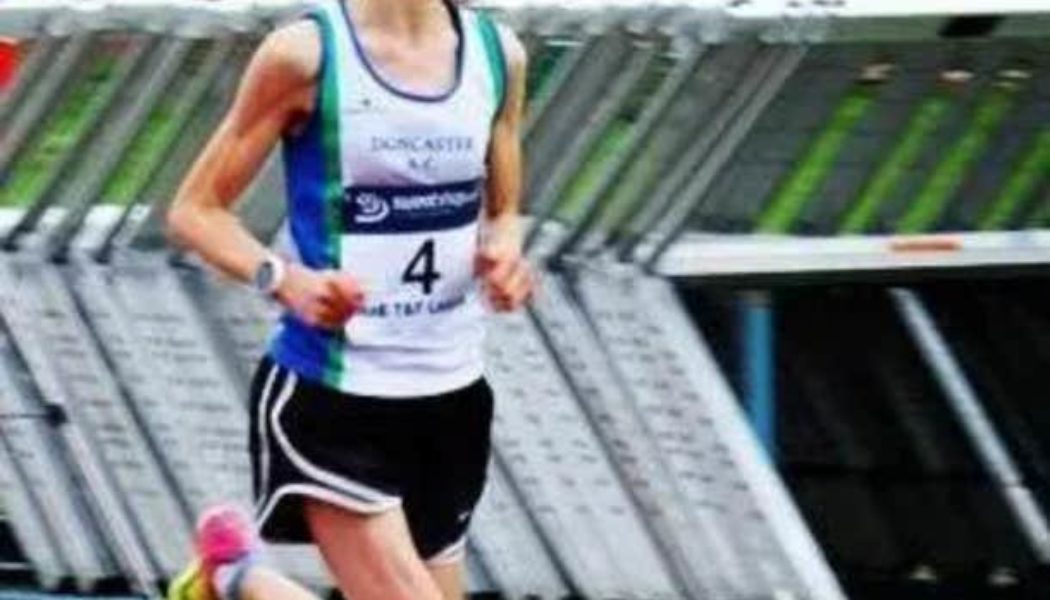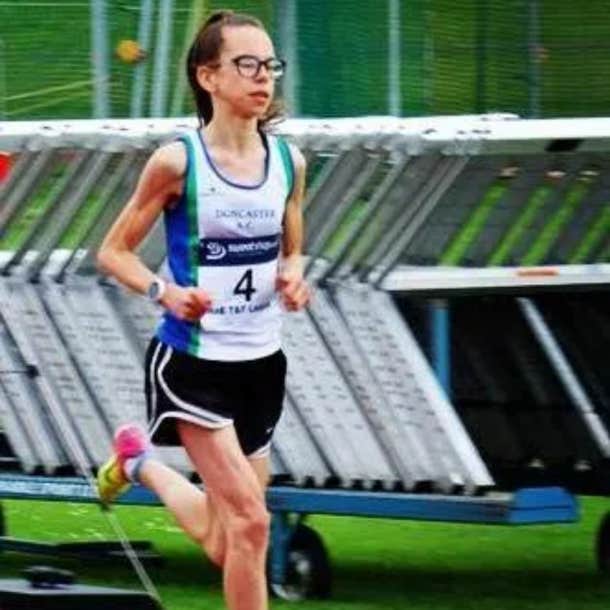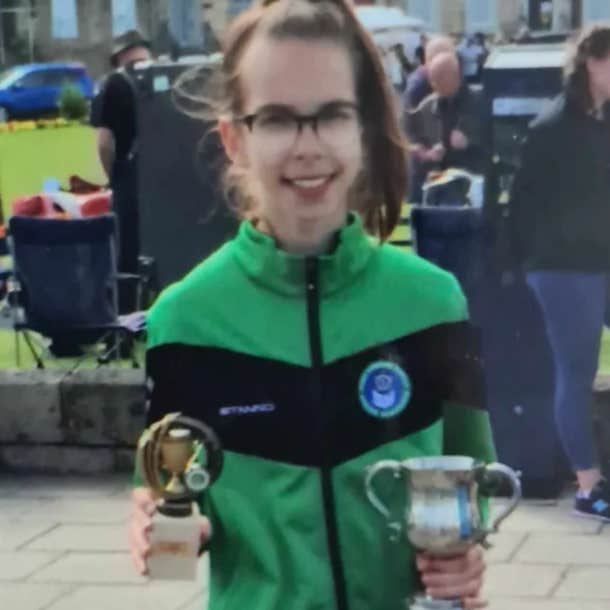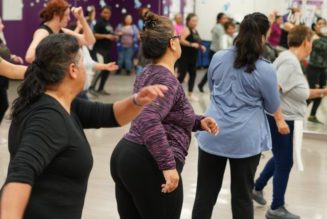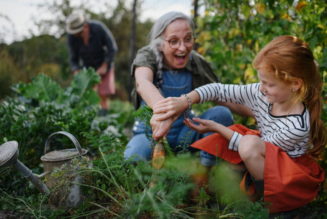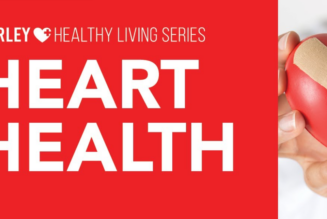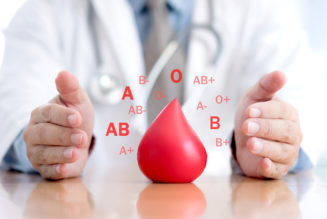Unfortunately, we live in a society wrapped up in diet culture, a society that can very much be described as being ‘fatphobic.’ People presenting themselves in a body size that is larger than the ‘ideal’ are subject to, extremely uncalled-for, discrimination. This causes people to attach labels based on how much they weigh. People are determined to be healthy or unhealthy based on their relationship with gravity. (Surely, you can already see why this is such an unreliable measurement?)
To highlight just how much we stereotype people in line with their weight, I want you to ask yourself this: if you were presented with person A, someone in a smaller body eating a bowl of salad, and person B, someone in a larger body eating a doughnut, who would you perceive to be healthier?
I can confidently guess that the majority of you said that person A would, unquestionably, be the healthiest. What if I then went on to tell you that person A had been living with an eating disorder for most of their life, that salad is the only food they allow themselves to eat, and that person B is enjoying a doughnut after their third gym session of the week? Would you still perceive the smaller person to be healthier? Probably not.
My point is: We cannot judge a person’s health on their external appearance, though, as is the case with most things, this is often easier said than done. Unlearning a narrative we have been told for most, if not all, of our lives, takes a great deal of time. It requires us to challenge the subconscious part of our brain that associates health with a particular size.
I am only now realizing that in my quest to be healthy, I was becoming increasingly unhealthy.
When I was in what was undoubtedly the unhealthiest period of my life, I indisputably fit the stereotype of optimum health, with my toned stomach being labeled as #fitnessgoals. The issue with this was that no one could see what was going on behind the ‘inspiring’ Instagram posts.
Running up to 40 miles a week, my bones were becoming weaker by the day (I was diagnosed with osteopenia, the onset of osteoporosis, at 17), my heart rate was dropping dangerously low and, perhaps most notably, my mental state was rapidly depleting.
I would turn up late because I had to wait for my Dad to go to work before I could go for a run, and once I was out, I couldn’t stop. I would even threaten to commit suicide if I wasn’t allowed to run. That is how addicted I was.
If I couldn’t exercise, I couldn’t see a point in living, let alone eating. It was the only thing that mattered to me.
6-mile runs became half marathons, all ran on an empty stomach before breakfast. Upon my return, I would eat only ‘safe’ foods: fruit, vegetables, and little else. My ‘fear food’ list, however, was extensive.
And, it wasn’t just the act of running itself that I was ‘addicted’ to, I was consumed by every aspect of it, and every waking minute was either spent running or thinking about running. My room was covered in race numbers, photos of athletes pinned to my walls, medals hanging up, trophies lining my shelves, books about running and ‘healthy’ eating, Athletics Weekly and Runners World magazines taking over my bookcase, workout gear taking over my wardrobe, trainers, spikes, racing flats taking over my cupboards — my whole identity was centered around running.
I was ‘Lisa the Runner’ (with an eating disorder). No personality, but at least I could run 5km in 19 minutes! Never mind the fact that I was losing friends, ruining relationships with my family, and destroying myself in the process.
Photos: Author, Lisa Fouweather
The reality is that while my weight loss appeared to be ‘working‘ — as I lost weight weight my times improved — it was in no way at all sustainable. My dangerously low weight combined with my low heart rate and ‘off’ blood test results, all things which were, according to the nurses and psychiatrist involved in my care, becoming more worrying by the week meant that, inevitably, something had to give.
It was either going to be a case of me stopping running, or me stopping living, I now realize, the latter being something which, undoubtedly, could’ve been had I not been sent to a psychiatric care unit at 16 and forced to stop running when I was there.
Looking back on this, it haunts me to think that I wouldn’t have made it to 22, or even 17 if I didn’t stop running.
Running was, quite literally, my everything — an addiction/ If you’d asked me to explain why I felt like I had to run, as I was once asked by my grandma, I would’ve been unable to answer. It was a belief that had become so ingrained in my head, so deeply rooted in my whole being, that I felt it was beyond words.
So intense was my ‘need‘ to run that it took the decision (to continue running or to completely stop) being taken out of my hands entirely to realize that I could carry on without it, but I couldn’t carry on with it.
Sectioned at 16
I remember standing in my garden, begging my mum to let me run away, while inside, my psychiatrist called for an ambulance. I was to be detained under section 3 of the Mental Health Act. My dad was given a document to sign that meant he had to essentially ‘give up’ his rights as a parent.
I went back inside to say my goodbyes to my family. My home. My freedom. Then I was taken away, by ambulance, to a completely unknown place.
Anorexia Nervosa is an illness characterized by a need for control. I went from running to give me that sense of control to having no control: No say over what would happen to me. No say over my body. No say over my life.
I had doctors waking me in the early hours with needles, sticking cannulas in my arm, hooking me up to drips, taking blood, and sticking pads to my chest for emergency ECGs. Machines constantly beeping. Bed rest, Nutri drinks, threats of being tube fed. My mind constantly whizzing. And eyes constantly watching over me, in case I tried to leave.
The doctors and nurses, though trying their best, did not understand eating disorders, let alone the largely unheard-of Orthorexia, therefore I ended up losing more weight while in the hospital.
After three weeks on bed rest in my local hospital, a week before my 17th birthday, I was transferred to a specialized eating disorder inpatient hospital, where I would stay for 7 months.
Recovery
I spent my whole adolescence — between the ages of 14 and 17 — clinging to my eating disorder, using it as a sort of ‘safety blanket’, something which I turned to when life felt ‘too much’ and I needed to numb the pain.
No longer do I have the safety blanket of Anorexia, as I’m in recovery now, the very nature of which is full of unknowns.
Recovery is chaotic, confusing, and a far cry from anything remotely resembling safety. Recovery is something that I have to choose, every day, every meal, every time my disordered voice tries to creep back in (which, if I’m being honest, is more often than I’d like to admit).
I never wake up without feeling uncomfortable in my body, because, in many ways, I hate my body now.
When I was admitted to the hospital, I was very underweight. While I had specific areas that caused me to feel discomfort, my body image wasn’t too bad. I didn’t think I was fat; I just didn’t realize how thin I was.
I would body check in mirrors, lifting my shirt to check my abs were still there, not because I believed that my stomach was too big, but because I feared my stomach getting too big. It’s why I was anorexic for as long as I was. I was more scared of losing my toned body than I was of dying.
Although medically I’m allowed to run again, I know that due to my predisposition to over-exercise, running isn’t an option for me. I cannot trust myself, perhaps in the same way that an ex-alcoholic cannot trust themselves to drink alcohol again, despite promising they will do so only in moderation.
Because of this, I have quite literally had to find myself again. My whole identity was based around running. It is what everyone knew me for. Rediscovering myself was, and still is, hard.
Redefining Health
As someone who is now, thankfully, in eating disorder recovery, I have to get up every single day and redefine what I’ve believed to be ‘healthy’ for so long.
Health is not running half-marathons on an empty stomach, and it’s not cutting all fat and sugar from one’s diet.
Health is feeling good.
Health is knowing that I can eat whatever I want to eat, whenever I want to eat it, for food is neither good nor bad, food is just food.
Food is a necessity we all need to survive — and I can also appreciate now that food is enjoyable. It connects people and it tastes good. I don’t need to deny myself that.
Friday night fish and chips. Post-hike sandwiches and cakes in the Peak District with my Dad. Saturday night pizza. Time spent with my family where I can be present with them (because I’m not starving and miserable).
And, as food is just food, exercise is just exercise. Not exercising doesn’t make me ‘lazy.’ Having a day off when I feel tired, or when I’m just ‘not in the mood’ for it, is healthier than forcing myself to stick to an extremely regimented exercise schedule, where ‘off days’ are not allowed.
Embracing Freedom
A lot has changed in five years. I might not be ‘there yet’, and, I might never get ‘there’ (where even is ‘there?’) but, if someone had told 16-year-old Lisa, on her first night in the hospital, chest heavy, what she’d be doing at 22, that she’d still be here, alive, I don’t think that she’d have believed them.
Although being sectioned was the hardest thing that I’ve ever experienced, it was also the very thing that saved me. Not just literally but physically and mentally, too. Even if I had been able to keep running at the level I was at back then, at the weight I was, with no damage to my physical health, mentally, I’d be in pieces. I’d be unable to say yes to anything outside of running. I’d miss out on so much.
Now I can say yes to things.
Now I can enjoy food.
Now I can make memories.
Now I have the freedom to do whatever I want with my life. To be whoever I want to be.
And that truly, is so freeing.
Lisa Fouweather is a writer, poet, and founder of ‘Portfolio of Hope,’ a blog exploring themes from mental health to philosophy. She’s had poems featured on the BBC and writes for Medium, Portfolio of Hope, YourTango, and Doncaster Free Press.
This article was originally published at Medium. Reprinted with permission from the author.
